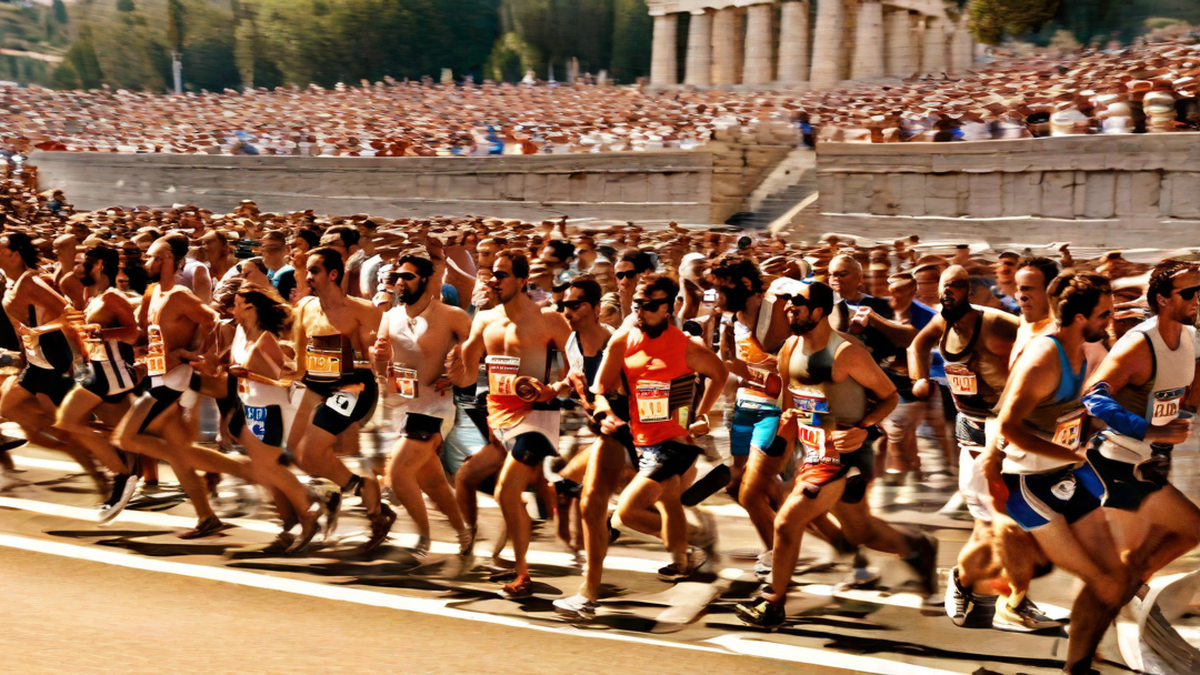Have you ever wondered why the marathon is called the marathon? I certainly did, and I was intrigued to dive deep into the history and origins of this iconic race. Join me on this journey as we explore the fascinating story behind the marathon.
The Ancient Greek Connection
To truly understand the origins of the marathon, we must go back to ancient Greece, where the concept of long-distance running first emerged. The Greeks held the ancient Olympic Games, which included various athletic events. One of these events was called the “stadion,” a race that covered a distance of approximately 200 meters.
However, it was a different event, known as the “hoplitodromos,” that laid the foundation for the modern marathon. This race was a test of endurance, as participants would run in full armor, including a helmet, shield, and greaves.
The Legend of Pheidippides
Now, let’s fast forward to the year 490 BCE and the Battle of Marathon. The Persians, under King Darius I, invaded Greece, and the Athenians sent a small force to meet them. The Athenian army, led by General Miltiades, achieved a remarkable victory, but an urgent message needed to be sent to Athens to inform them of the triumph.
According to legend, a Greek soldier named Pheidippides was chosen for this critical task. Pheidippides ran from the battlefield in Marathon to Athens, covering a distance of around 25 miles, to deliver the news. Upon reaching Athens, he exclaimed, “We have won!” before collapsing and dying from exhaustion.
The Birth of the Marathon
The legendary run of Pheidippides caught the imagination of the public, and it soon became a symbol of endurance and determination. In 1896, the marathon made its debut at the modern Olympic Games in Athens, Greece. The race was set at a distance of 24.85 miles to commemorate the original route taken by Pheidippides.
Interestingly, the distance of the marathon varied in subsequent years until the International Olympic Committee standardized it to the current distance of 26.2 miles in 1908 during the London Olympics. This additional distance was added to accommodate the royal family’s request to have the race start at Windsor Castle and finish in front of the royal box at the Olympic Stadium.
The Legacy of the Marathon
Since its inception, the marathon has become one of the most prestigious and iconic races in the world. It symbolizes the triumph of human spirit and the ability to overcome physical and mental barriers. Countless individuals have challenged themselves by training for and completing a marathon, pushing their limits and achieving personal goals.
Today, marathons are organized in cities around the globe, attracting participants from all walks of life. The Boston Marathon, first run in 1897, is one of the oldest and most prestigious marathons, while the New York City Marathon, started in 1970, is the largest marathon in the world in terms of participants.
In Conclusion
The marathon’s name and legacy are deeply rooted in ancient Greek history and the remarkable feat of Pheidippides. The endurance and determination displayed in that legendary run continue to inspire athletes and enthusiasts worldwide. So, the next time you hear about a marathon, remember the incredible story behind its name and the lasting impact it has had on the world of running.

